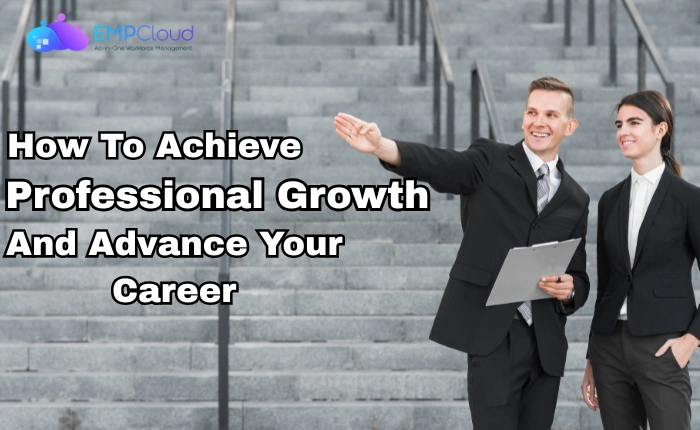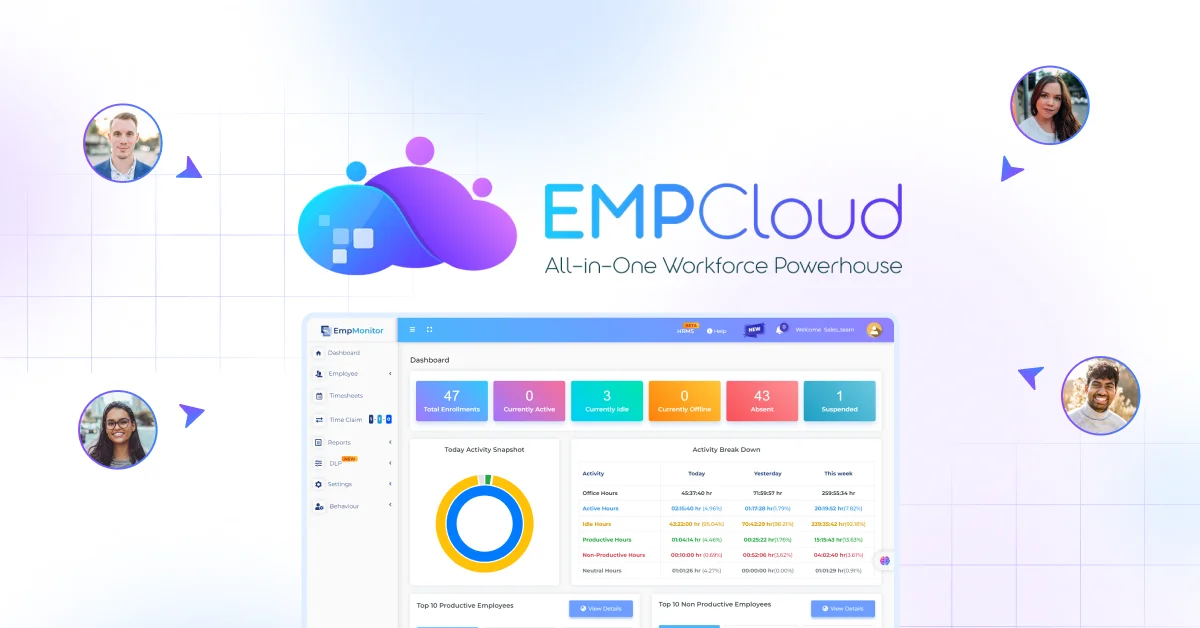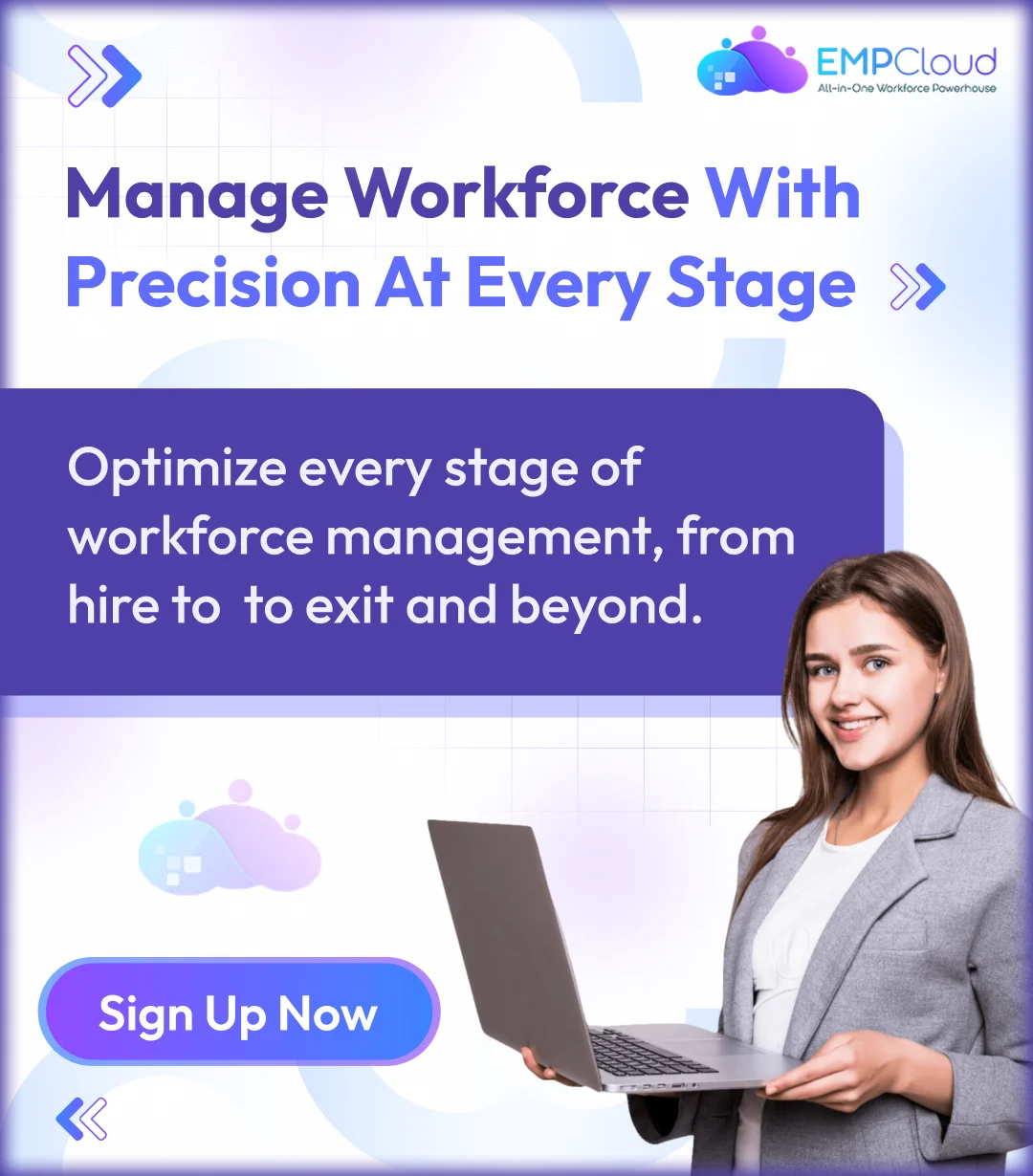
Success looks different for everyone, but one thing is certain: none of us gets there without growing along the way. Professional growth isn’t just about chasing promotions or climbing a ladder. It’s about learning new skills, overcoming challenges, and discovering what kind of career truly excites you.
Maybe you’re just starting out and trying to find your footing, or maybe you’re aiming for that next big leadership role. Wherever you are, focusing on growth helps you feel more confident in the present and prepared for whatever comes next.
In this guide, we’ll talk about what professional growth really means, why it matters, and the small but powerful steps you can take to keep moving forward.
Listen To The Podcast Now!
What Is Professional Growth?
Before diving into strategies, it’s important to answer a fundamental question: what is professional growth?
Professional growth is the ongoing process of learning, developing, and improving skills to reach new levels of competence and effectiveness in your career. It involves acquiring technical expertise, soft skills, and the right mindset to adapt to changes in your field. Unlike short-term training, professional growth is continuous, it evolves as your career expands.
Why Professional Growth Is The Key To Long-Term Success?
Professional growth isn’t just a nice-to-have, it’s the foundation of a thriving career. Here’s why making it a priority pays off:
- More Career Opportunities – As you build new skills and expand your expertise, you position yourself for promotions, leadership roles, and even career shifts into exciting industries.
- Higher Job Satisfaction – Growth gives your work deeper meaning, making everyday tasks feel purposeful instead of routine. When you see progress, motivation naturally follows.
- Stronger Adaptability – In today’s fast-changing workplace, upskilling ensures you stay relevant. The more flexible you are, the easier it becomes to embrace change and seize opportunities.
- Improved Financial Security – With growth often comes higher earning potential. Employers are willing to invest more in professionals who bring fresh skills and forward-thinking ideas.
- Boosted Confidence – Every milestone achieved builds trust in your own abilities, empowering you to take on challenges and pursue goals you once thought were out of reach.
What Are The Key Dimensions Of Professional Growth?
Professional growth is multi-faceted, and focusing on each dimension ensures a well-rounded career journey. Human resource management plays a crucial role in supporting these dimensions by providing training, mentorship, and opportunities for development. Here are the areas that matter most:
Skill Development –
Growth starts with sharpening both technical and soft skills. From mastering new tools to improving communication and problem-solving, skill-building makes you more effective and versatile.
Knowledge Expansion –
Staying updated with industry trends, emerging technologies, and best practices helps you remain competitive and forward-thinking in your field.
Networking –
Relationships are often the gateway to opportunities. Building and nurturing a strong professional network can open doors to mentorship, collaborations, and career advancements you might not find on your own.
Leadership Skills –
Leadership isn’t limited to those with a formal title. Taking initiative, guiding peers, and influencing outcomes all build credibility and prepare you for bigger responsibilities.
Work-Life Integration –
True growth also means managing personal and professional priorities in harmony. Striking this balance boosts productivity, reduces burnout, and sustains long-term success.
Also Read:
Human Resource Management: A Strategic Guide
What Professional Growth Strategies Truly Work?
While everyone’s career path is unique, certain strategies consistently help professionals move forward. Here are some proven approaches you can adopt:
Set Clear Goals –
Start by defining both short-term and long-term objectives. Ask yourself: Where do I see myself in 3–5 years? Having a clear vision gives direction and helps you prioritize the right opportunities instead of chasing distractions.
Invest in Continuous Learning –
Growth thrives on curiosity. Whether it’s online courses, workshops, certifications, or even self-study, expanding your knowledge keeps you relevant and competitive in an evolving job market.
Seek Mentorship –
A mentor provides guidance, feedback, and perspective based on real-world experience. Learning from someone who has walked the path before you can save years of trial and error.
Expand Your Network –
Building strong professional connections is more than just “knowing people.” Attend industry conferences, engage in online communities, and nurture relationships. A strong network often leads to collaborations, referrals, and new career openings.
Track and Reflect on Progress –
Growth isn’t always visible day-to-day, which is why tracking matters. Regularly evaluate your achievements, reassess your goals, and adjust your strategies. Reflection ensures that you’re moving forward with intention, not just activity.
What Are Some Real-Life Professional Growth Examples?
Looking at professional growth examples can make the concept more practical and inspiring. These real stories show how consistent effort and the right strategies can transform careers:
Sarah, the Marketer –
Sarah realized that marketing was becoming more data-driven. She took online courses in analytics and learned how to interpret customer behavior. With her upgraded skill set, she moved from a content marketing role into a digital strategist position, where she now influences major campaign decisions.
Raj, the Engineer –
Raj had strong technical expertise but wanted to take on more responsibility. By upskilling in project management and earning a certification, he successfully transitioned into a managerial role. Today, he leads cross-functional teams and ensures projects run smoothly from start to finish.
Emma, the Teacher –
Emma noticed the shift toward digital learning. Instead of resisting change, she embraced it by training in educational technology tools. Her efforts paid off when she became an e-learning specialist, opening up new opportunities beyond traditional classrooms.
These professional growth examples highlight that success doesn’t happen overnight, it’s the result of consistent learning, adaptability, and persistence.
How Can You Build The Right Skills For Career Growth?
Skill-building is at the heart of professional growth. To achieve long-term success, focus on two categories:
Technical Skills
- Master industry-relevant tools and technologies.
- Stay updated with trends in your field.
- Gain certifications to validate your expertise.
Soft Skills
- Communication and teamwork remain crucial.
- Adaptability helps you thrive in uncertain environments.
- Leadership and problem-solving skills set you apart from peers.
Regularly aligning your learning with employee goal setting ensures that the skills you build directly support your career objectives and organizational success.
The Role Of Professional Development Strategies
The path to growth requires a structured approach, often guided by professional development strategies. These strategies combine formal education, practical experience, and self-directed learning to ensure continuous progress. For instance, companies that invest in training programs enable employees to upskill faster, while individuals who pursue personal learning initiatives stay ahead of industry shifts.
The role of professional development strategies goes beyond just acquiring new knowledge, it’s about applying that knowledge effectively. Structured plans often include mentorship, goal setting, and feedback loops that help track progress and refine skills over time. By combining organizational support with individual initiative, these strategies create a sustainable growth cycle where learning becomes an ongoing part of career success.
Also Read:
How To Master Employee Goal Setting For Lasting Success?
How Professional Growth Impacts Organizations?
Professional growth doesn’t just benefit individuals, it plays a critical role in driving organizational success. When employees are encouraged to expand their skills, organizations see measurable improvements across multiple areas.
- Higher Employee Retention – Workers who feel valued and supported in their development are more likely to stay long-term, reducing turnover costs.
- Increased Productivity – Employees who sharpen their skills and adopt new tools complete tasks more efficiently and contribute at higher levels.
- Stronger Innovation – A growth-focused culture sparks creativity, enabling teams to generate fresh ideas and stay ahead of competitors.
- Better Workplace Culture – Continuous learning fosters collaboration, trust, and a positive environment where people thrive.
Organizations that invest in employee professional growth often see better retention and productivity. Digital solutions like EmpCloud help companies provide structured learning, track performance, and streamline onboarding. By using platforms that support skill development and engagement, businesses create an environment where employees grow and thrive, ultimately leading to stronger organizational performance and sustainable success.
How EmpCloud Supports Professional Growth?
While individual effort is crucial, having the right tools can accelerate professional growth. EmpCloud provides modern workforce management and development solutions that help organizations empower their employees to achieve more by combining learning, performance tracking, and engagement features into one solution.
Here’s how EmpCloud supports growth and career development:
Streamlined Onboarding –
A smooth start sets the foundation for long-term success. With EmpCloud’s digital onboarding process, new employees quickly adapt to company policies, workflows, and culture. This reduces confusion, shortens the learning curve, and allows individuals to begin contributing meaningfully from day one.
Learning & Development –
Professional growth thrives on continuous learning. EmpCloud offers access to tailored training modules, workshops, and resources that align with both organizational needs and employee ambitions. This ensures employees stay current with industry trends while developing critical skills for future career advancement.
Performance Tracking –
Growth becomes measurable with EmpCloud’s real-time analytics. Employees and managers can set goals, monitor progress, and receive actionable insights into strengths and areas for improvement. Transparent performance tracking creates accountability while motivating employees to achieve milestones step by step.
Employee Engagement –
A motivated workforce is more likely to pursue professional growth. EmpCloud fosters employee recognition and uses feedback mechanisms to reward them for their efforts. That helps in keeping employees connected and engaged. It not only enhances morale but also builds a supportive workplace culture.
Scalable Growth Support –
Organizations evolve, and so do employees’ needs. EmpCloud adapts to these changes by offering scalable solutions that support both individual development and enterprise-level growth initiatives. Whether a company is onboarding five employees or five hundred, EmpCloud ensures that growth opportunities remain consistent and accessible.
By integrating a platform like EmpCloud, both individuals and organizations can ensure that professional growth is not just encouraged but actively nurtured, making it a continuous, measurable, and rewarding journey for all.
Career Growth Strategies vs. Professional Growth
You may wonder: how are career growth and professional growth different? While they are closely linked, they focus on distinct but complementary areas.
Career Growth Strategies:
These are external, outcome-driven steps that shape the direction of your professional journey. They often involve seeking promotions, switching roles, exploring new industries, or positioning yourself for leadership. In short, career growth strategies are about the visible milestones that mark progress in your career path.
Professional Growth:
This is more internal and skill-centered. It focuses on building competencies, developing the right mindset, and strengthening both technical and soft skills. Professional growth prepares you to adapt, perform, and lead, ensuring you’re ready when new opportunities arise.
When combined, career growth strategies and professional growth create a strong foundation for long-term success. Career growth gives you the roadmap, while professional growth equips you with the tools to travel that path with confidence.
What Challenges Can You Face In Professional Growth & How To Overcome Them?
Professional growth is rewarding, but it doesn’t come without obstacles. Recognizing these challenges early helps you prepare and tackle them more effectively:
Time Constraints –
Balancing daily responsibilities with skill-building can feel overwhelming. The solution lies in smart scheduling, dedicate small, consistent time blocks for learning rather than waiting for large chunks of free time.
Lack of Guidance –
Without mentorship or feedback, it’s easy to feel stuck or directionless. Seeking mentors, joining professional communities, or leveraging online learning platforms can provide the guidance and clarity you need.
Fear of Change –
Growth requires stepping out of your comfort zone, which often feels intimidating. Reframing change as an opportunity rather than a risk can help you embrace uncertainty with confidence.
Financial Limitations –
Courses, certifications, and training programs can be costly. Fortunately, many affordable or even free resources, such as webinars, open online courses, and company-sponsored training, can support your development without breaking the bank.
The key is persistence: manage your time wisely, seek support systems, embrace discomfort as growth in action, and explore resources that match your budget. Each small step forward compounds into lasting progress.
How Can You Take Action To Start Your Professional Growth Journey?
If you’re ready to take control of your career, here’s a practical, step-by-step framework to kickstart your professional growth:
- Self-Assessment – Begin by reflecting on your strengths, weaknesses, and areas for improvement. Understanding where you currently stand helps you focus your efforts effectively.
- Goal Setting – Define clear short-term and long-term aspirations. Break big goals into smaller milestones to make progress measurable and achievable.
- Learning Plan – Identify resources that match your goals. Enroll in courses, attend workshops, read books, or seek mentors who can guide your development.
- Skill Application – Knowledge alone isn’t enough. Apply what you learn in real-world projects, volunteer work, or side initiatives to reinforce skills and gain practical experience.
- Networking – Connect with professionals who inspire you, join industry groups, and engage in online communities. Networking opens doors to mentorship, collaborations, and new opportunities.
- Feedback & Improvement – Actively seek feedback and treat it as a roadmap for refinement. Regularly review your progress, adjust your plan, and keep evolving.
Starting your professional growth journey is about consistency and intentional action. Even small, deliberate steps each day can lead to significant long-term results.
The Future Of Professional Growth
The future workplace will demand adaptability, creativity, and tech-savviness. Trends such as artificial intelligence, hybrid work, and global collaboration will reshape how we view success. Professionals who embrace lifelong learning and prioritize growth will stay ahead.
Conclusion
Professional growth is not a one-time achievement, it’s a lifelong journey. By setting clear goals, learning continuously, and embracing challenges, you can shape a career filled with purpose and success. Whether you aim for leadership, mastery in your field, or a fulfilling work-life balance, your growth journey will define your achievements.
Start today, take small steps, and remember: every investment in your professional growth compounds over time, creating a future filled with opportunities. Tools like EmpCloud can support this journey by providing structured learning, performance tracking, and engagement solutions that help both individuals and organizations thrive.
FAQs
1. What is professional growth?
Ans. Professional growth refers to the continuous process of developing skills, expanding knowledge, and enhancing competencies to advance in one’s career. It encompasses both technical abilities and soft skills, fostering adaptability and leadership qualities.
2. How can I start my professional growth journey?
Ans. Begin by assessing your current skills and identifying areas for improvement. Set clear, achievable goals, seek learning opportunities such as courses or mentorship, and consistently apply new knowledge in your work.
3. Why is professional development important for organizations?
Ans. Investing in professional development leads to a more skilled and engaged workforce, which can result in increased productivity, innovation, and employee retention. It also helps organizations stay competitive in a rapidly changing market.








